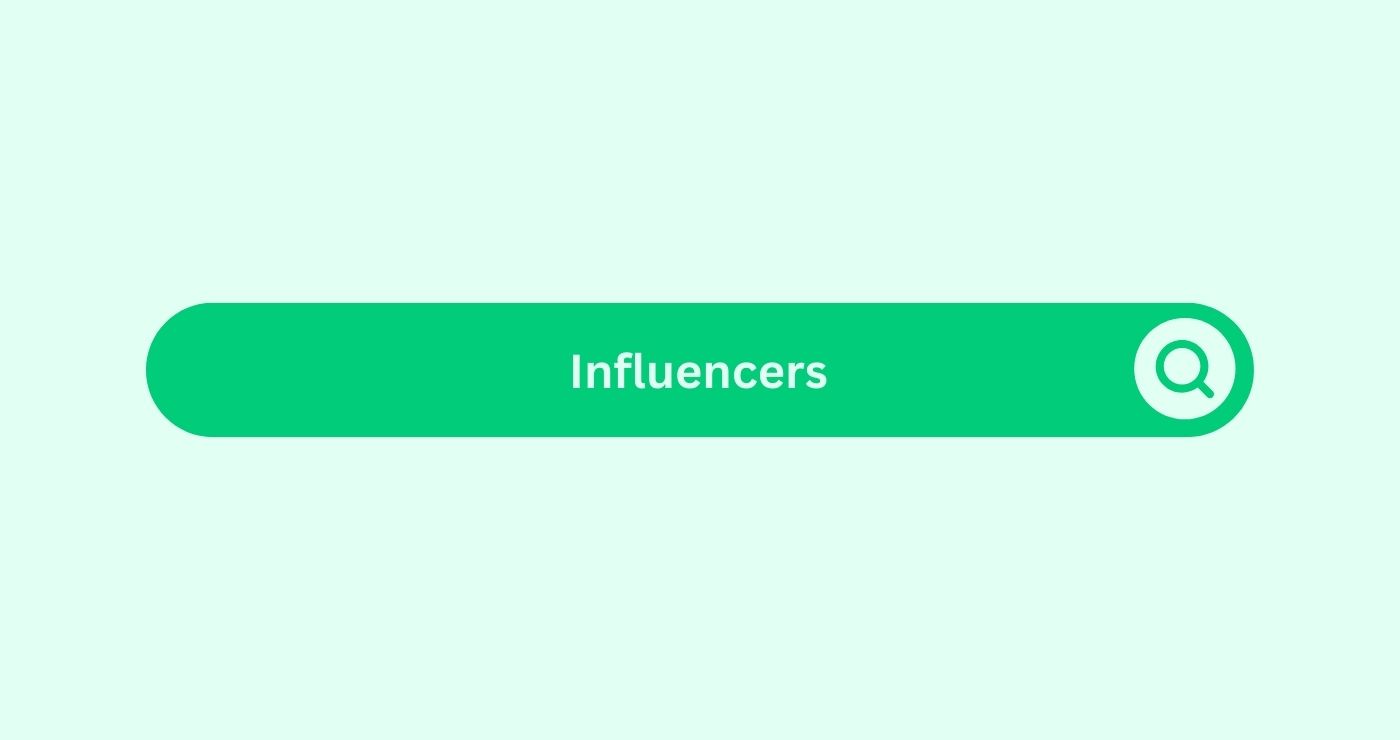Definition
Influencers are individuals with the power to affect the purchasing decisions of others due to their authority, knowledge, position, or relationship with their audienceDefinition The term "Audience" refers to the group of indivi.... Typically, they have a significant following on social mediaWhat is Social Media? Social media refers to online platform... platforms, blogs, or other online channelsDefinition Channels in the context of SEO refer to the vario.... Influencers can vary widely in their reach and niche, from macro-influencers with millions of followers to micro-influencers with a more intimate but highly engaged audienceDefinition The term "Audience" refers to the group of indivi....
How You Can Use
Imagine you are launching a new line of organic skincare products. To maximise your reach and build credibility, you collaborate with a popular beauty influencerDefinition: An influencer in social media marketing is an in... who has a strong following among skincare enthusiasts. You send them a selection of your products to try, and they create a series of posts and stories on Instagram showcasing their experience and results.
Formulas and Calculations:
To measure the impact of your influencerDefinition: An influencer in social media marketing is an in... campaignDefinition An SEO campaign involves focused, Organised effor..., you can use several key metricsWhat are Metrics in the context of SEO? Metrics in SEO refer... and formulas:
- Engagement RateDefinition The engagement rate in social media marketing mea...: (Total Engagements / Total Followers) * 100
- This formula calculates the percentage of the influencer’s audienceDefinition The term "Audience" refers to the group of indivi... that engages with their content.
- Conversion RateDefinition Conversion Rate in the SEO space refers to the pe...: (Number of Conversions / Total Clicks) * 100
- Cost Per EngagementDefinition Engagement in content marketing refers to the deg... (CPE): Total CampaignDefinition An SEO campaign involves focused, Organised effor... Cost / Total Engagements
- This metric helps you understand the cost-effectiveness of the campaignDefinition An SEO campaign involves focused, Organised effor... based on the engagementDefinition Engagement in content marketing refers to the deg... it generates.
Key Takeaways
- Authenticity: Choose influencers who genuinely align with your brand values and products to ensure authentic and credible endorsements.
- EngagementDefinition Engagement in content marketing refers to the deg... Over Reach: Focus on influencers with high engagementDefinition Engagement in content marketing refers to the deg... rates rather than just a large following to ensure your message resonates with their audienceDefinition The term "Audience" refers to the group of indivi....
- Clear GoalsIn the SEO space, "Goals" refer to specific, measurable obje...: Define clear objectives for your influencerDefinition: An influencer in social media marketing is an in... campaigns, such as brand awarenessDefinition Brand awareness in social media marketing is the ..., trafficDefinition In the context of SEO (Search Engine Optimisation..., or conversions, to measure success effectively.
- Track Performance: Use unique discount codes, UTM parameters, and other tracking methods to measure the impact of influencerDefinition: An influencer in social media marketing is an in... collaborations.
- Build Relationships: Foster long-term relationships with influencers for ongoing collaboration and more meaningful engagementDefinition Engagement in content marketing refers to the deg... with their audienceDefinition The term "Audience" refers to the group of indivi....
FAQs
What is an influencer?
An influencerDefinition: An influencer in social media marketing is an in... is an individual with the power to impact others' purchasing decisions due to their authority, knowledge, or relationship with their audienceDefinition The term "Audience" refers to the group of indivi....
How do influencers benefit my SEO strategy?
Influencers can drive trafficDefinition In the context of SEO (Search Engine Optimisation... to your website, increase brand visibility, and generate high-quality backlinksWhat are backlinks in the context of SEO? Backlinks, also kn..., all of which can improve your search engine rankings.
What types of influencers are there?
There are various types of influencers, including mega-influencers, macro-influencers, micro-influencers, and nano-influencers, each with different levels of reach and engagementDefinition Engagement in content marketing refers to the deg....
How do I choose the right influencer for my brand?
Select influencers whose audienceDefinition The term "Audience" refers to the group of indivi... aligns with your target market and who share values similar to your brand to ensure authentic and effective collaborations.
What is a good engagement rate for an influencer?
A good engagement rateDefinition The engagement rate in social media marketing mea... can vary by platform and industry, but generally, an engagement rateDefinition The engagement rate in social media marketing mea... between 1% and 3% is considered average, with higher rates indicating more active and engaged audiences.
How can I measure the success of an influencer campaign?
Track metricsWhat are Metrics in the context of SEO? Metrics in SEO refer... such as engagement rateDefinition The engagement rate in social media marketing mea..., conversion rateDefinition Conversion Rate in the SEO space refers to the pe..., website trafficDefinition In the context of SEO (Search Engine Optimisation..., and sales generated from the campaignDefinition An SEO campaign involves focused, Organised effor... to evaluate its success.
Should I focus on influencers with a large following?
Not necessarily. Influencers with smaller but highly engaged audiences (micro-influencers) can often deliver better results than those with a larger but less engaged following.
How do I approach influencers for collaboration?
Reach out with a clear and personalized proposal that outlines the benefits of the collaboration for both the influencerDefinition: An influencer in social media marketing is an in... and your brand.
How much should I pay an influencer?
InfluencerDefinition: An influencer in social media marketing is an in... fees vary widely based on their reach, engagementDefinition Engagement in content marketing refers to the deg..., and niche. Some may charge per post, while others may prefer long-term partnership deals.
Can influencers help with brand credibility?
Yes, influencers can enhance brand credibility by providing authentic endorsements and leveraging their trust and rapport with their audienceDefinition The term "Audience" refers to the group of indivi....




